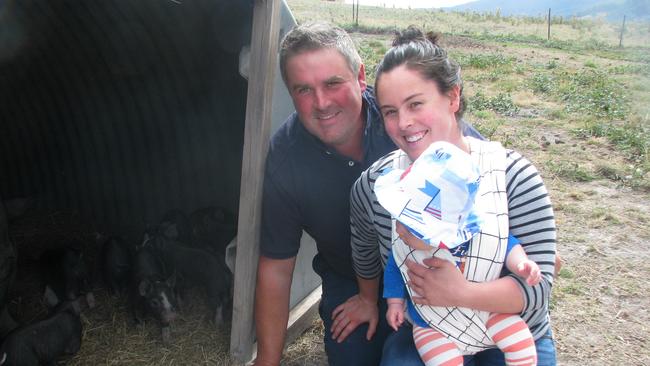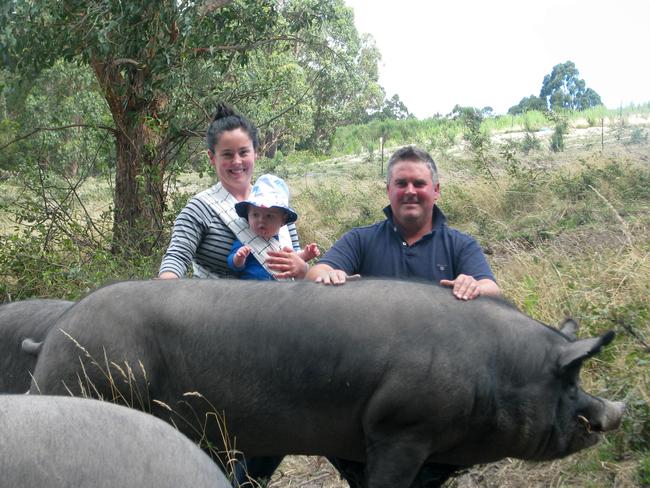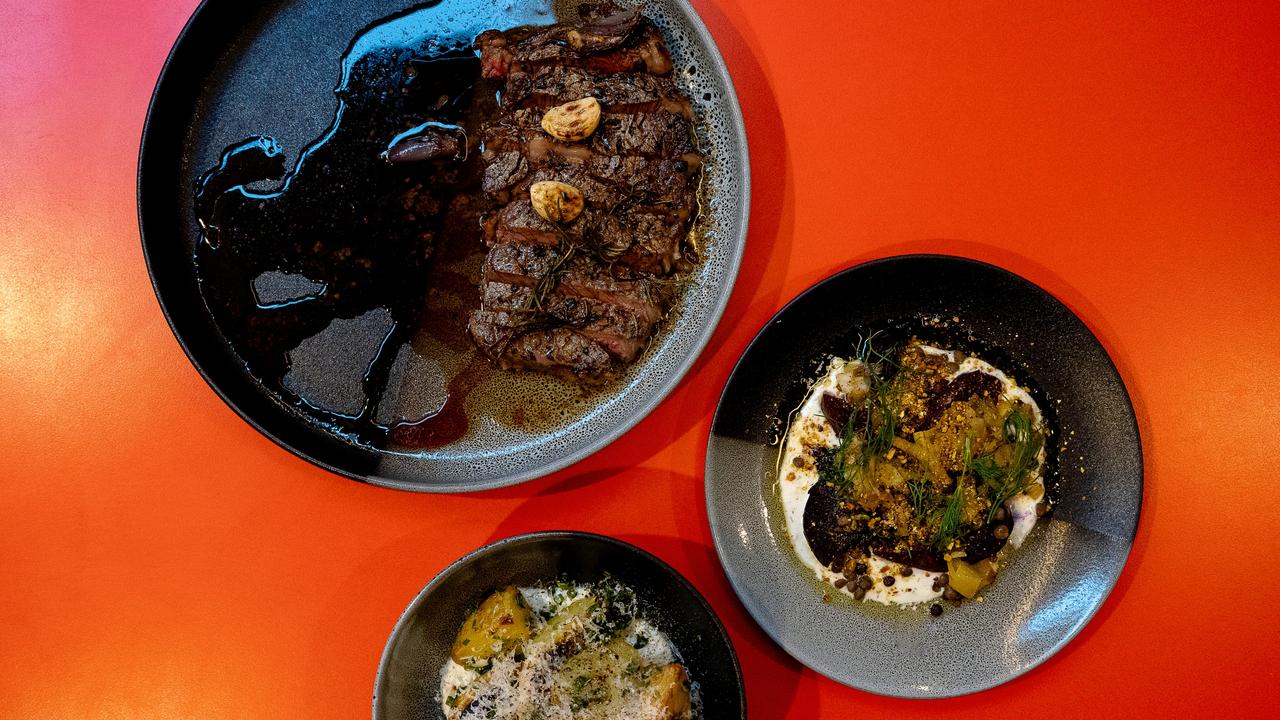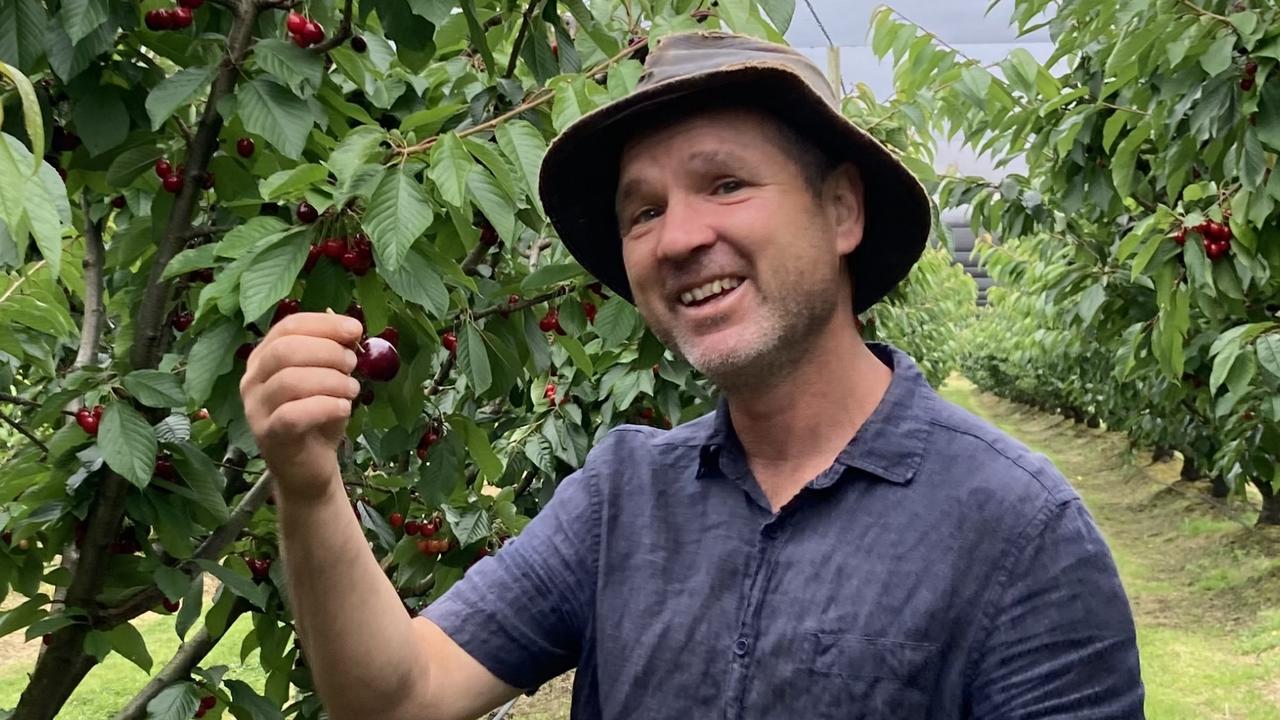Taste: Home on the free range
LILLIAN Reardon sails into a new life, swapping breeding krill for bringing up happy little porkers.

Food and Wine
Don't miss out on the headlines from Food and Wine. Followed categories will be added to My News.
A GROUP of good old guys at Cygnet Sailing Club was teaching a young woman to sail when she saw a boat go past with people her own age on board.
Whose boat was that, she asked. It was Damien Reardon’s, and Lillian jumped ship to join the young crew.
Now, the young Canberra woman who came to Tasmania to study Antarctic science and was busy breeding krill is now married to Damien Reardon and raising pigs. The couple also are raising two little boys Bede, 2, and Gideon, 7 months.
Damien has not made such a big move. He is farming in the area in which he grew up, and the couple’s 20ha overlooking the Huon River at Cradoc is next to one of his parents’ properties, handy for borrowing tractors and accessing waste apples and cherries for the pigs.
Huon Valley Berkshires is the only pig farm in Tasmania that is certified free range through Australian Pork Industry Quality (APIQ), which guarantees their porkers are free to range throughout their life and do piggy things.
To Damien it just is not on to pen up an animal as smart as a pig. “You can tell they want to be entertained,” he says. “They play around on that hill, tipping over logs, nibbling a blackberry, playing in the mud …”
The pigs are free to sunbathe or get out of the wind in dry huts whenever they fancy. Lillian says her husband worries about his pigs.
“He goes out and checks on them in the middle of night,” she says.
Berkshires are a heritage breed originating in the UK, where Cromwell’s army is reputed to have discovered them in the 17th century. However, more recently British breeding stock has been replenished from Australia.
Berkshire pork is a darker pink than the flesh of the usual commercial white pigs and marbled with fat, which makes it moist and easier to cook.
Lillian says: “A Berkshire roast is pretty foolproof for people who might be nervous about cooking pork — it would be very difficult to dry it out.”

The Wursthaus, which charges half as much again for a kilo of Huon Valley Berkshire leg ham as it does for others, notes that is the ideal ham for glazing. (I will put up my hand for having made a ham dry by trying to fancy it up with a Christmas glaze.)
The couple began their enterprise in 2011 with six sows and a boar. They spent a few years building up numbers before selling the meat commercially. Now they have 30 sows and three boars — named for 19th century literature heroes Mr Rochester, Mr Darcy and Colonel Brandon. An ideal number for them will be about 60 sows and six boars. They are one of only seven registered Berkshire breeders in Australia.
Damien says they have been able to expand with the help of the Wursthaus at Cambridge, which, since 2014, has taken all their stock.
Before then they were selling to friends, and meat to some butchers. But a butcher might want only a carcass every three months, or a restaurant might want all middles — and what were they to do with the rest.
Lillian says turning everything over to the Wursthaus and having them deal with butchers and restaurants and decide how much to turn into bacon and ham to feed herself and Damien “to do one thing really, really well and that’s raise the best pigs having the best life”.
There has been controversy of late over labelling pork “free-range” and “bred free-range”. When pigs are bred free-range they are born in shelters not farrowing pens, then taken from their mothers at about three weeks and raised indoors.
At Huon Valley Berkshires, the piglets stay with their mothers until they are five or six weeks old, when they are moved to another paddock and outdoor shelter with 30 or so of their peers.
Lillian says pigs described as bred free-range “makes it murky for the customer to know what the difference is between those pigs and ours”.
From the end of the month, pigs raised this way will be labelled Outdoor Bred Raised Indoors on Straw — explicit, but not as succinct or succulent as “free-range”.


